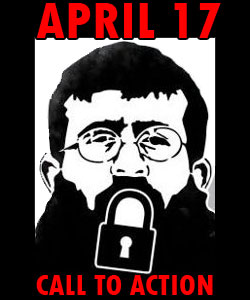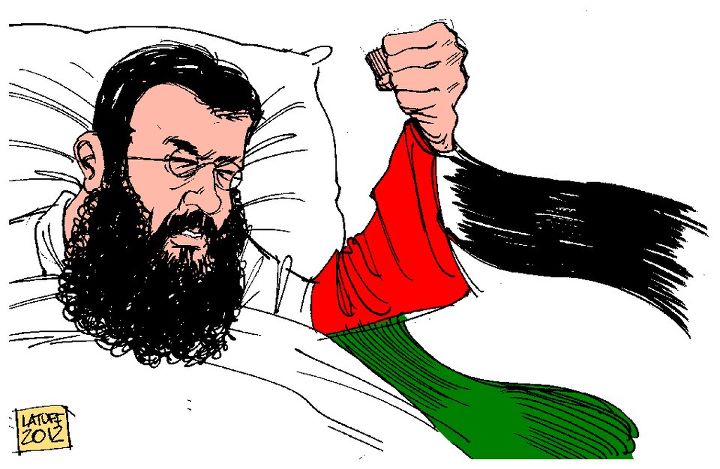Category: Press Releases
-
The world must heed Khader Adnan’s call: Make Palestinian Political Prisoners’ Day, 17 April 2012, a day of international action
21 February 2012 | Samidoun Organizational endorsements are welcome for this statement. Please click here or email april17@palestinianprisoners.org to endorse. “I hereby assert that I am confronting the occupiers not for my own sake as an individual, but for the sake of thousands of prisoners who are being deprived of their simplest human rights while the world and international…
-
URGENT: Heed Randa Adnan’s call. Military court rejects Khader Adnan’s appeal in de facto death sentence
13 February 2012 | Samidoun: Palestinian Prisoner Solidarity Network “My husband is dying inside an Israeli jail. The world should make sure I am able to see him,” she said. “And it should pressure the Israeli government to release him before it’s too late… Israel denied Khader any fairness or decency…But maybe the rest of…
-
Commemorating Palestinian Land Day: Join the BDS Global Day of Action on 30 March 2012!
10 February 2012 | Palestinian BDS National Committee Commemorating Land Day, the Palestinian BDS National Committee (BNC) invites people of conscience around the world to unite for a BDS Global Day of Action on 30 March 2012 in solidarity with the Palestinian people’s struggle for freedom, justice and equality and for Boycott, Divestment and Sanctions (BDS) against Israel until it…



